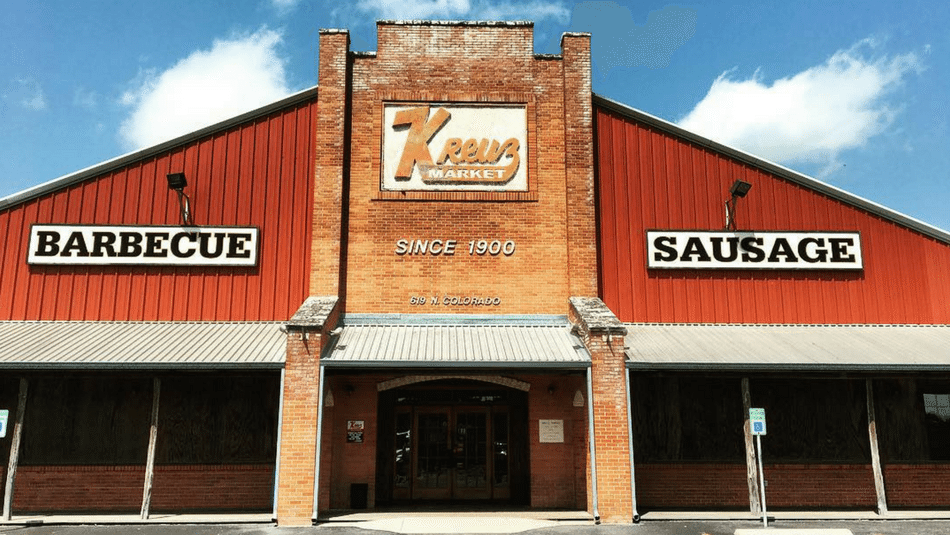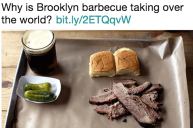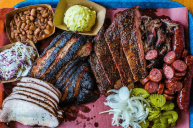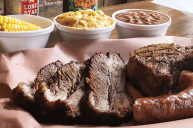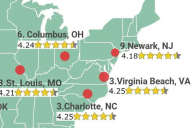Barbecue isn't owned by any one region in the country, or by any one country itself. While Texans may argue otherwise over brisket and North Carolina over pulled pork, the act of barbecuing is still an act of freedom. The ability to cook over an open fire builds a community. The fantastic documentary Barbecue showed us how barbecue is translated across 12 different countries, from Syrian refugee camps to the Texas Hill Country. So what does it mean, then, when publications like Eater and The Wall Street Journal tell Texans and the South to 'move over' to make way for New York barbecue? Well, it means a whole lot.
Videos by Wide Open Country
To begin, the article points to notable barbecue joints in New York City: Butcher Bar in Astoria, Hill Country Barbecue Market in the Flatiron District, Pig Beach in Brooklyn, Hometown Bar-B-Que in Red Hook, and Big W's Roadside Bar-B-Q in Wingdale. These joints are indeed delicious, and are doing interesting, creative things to meat, while also playing on the classics.
The problem is that the Wall Street Journal believes this barbecue culture is comparative to the old standbys in the South. For every decent barbecue plate you get in New York, there are about four bad barbecue plates right behind it. With high prices dictating the N.Y. barbecue market, too, there are hardly comparisons between traditional barbecue markets in states like Texas, where just about every farm road spanning 30 miles has a smokehouse on the side of it.
Barbecue has deep roots in the South, roots that date back hundreds of years and weave through family trees like strong Texas oaks. While you may not have come from a line of barbecue pitmasters like the Muellers or the Blacks, I'd bet money that you came from a family that frequented a barbecue joint growing up, whether it was in your own town or a precious hours-long family road trip just for ribs or brisket.
I'm not a Texan, I'm a transplant. However, growing up in Maryland, we made pilgrimages to Ralph's BBQ in Weldon, North Carolina for those pulled pork sandwiches every summer. So when I moved to Texas, I understood that barbecue is a culture, it's a community, and it's an ode to the ancestors who came before you, no matter ethnicity, gender, or location.
While the expansion of barbecue is an excellent sign that meat masters are finally gaining the public recognition they deserve beyond just the food world, producing superstars like Aaron Franklin and long-time superwoman Tootsie Tomanetz, there is something lost in translation with new barbecue joints popping up in areas that are not historically known to be big on barbecue.
Take this quote from the Wall Street Journal's article, from Charles Passy,
But just as significant may be the fact that New York is creating its own barbecue identity—albeit an identity that doesn't hew to any particular school or philosophy. Each place is its own thing—or, in some cases, several things.
So because New York doesn't have its own barbecue identity, Passy points to that lack of tradition as a positive thing, with room to grow and a culture to build. New York, and any other state in the U.S. for that matter, is more than welcome to join the barbecue ranks, but the problem comes with the comparison to old standbys like Missouri, the Carolinas, Georgia, and Texas.
In my opinion, there is no way to separate tradition and heart from barbecuing, and the hours spent over the pit, ensuring the temperature is perfect during the hours-long, overnight cooking process and finding the perfect piece of wood to smoke for the right flavor of meat, are the culmination of generations spent learning the ins and outs, often through trial and error.
It feels almost insulting to read headlines that tell Texans, or any other state, to watch out for a newcomer like New York City. With no disrespect to the pitmasters in the New York area truly grinding and carving out a space for barbecue to grow, there's no even comparison to the joints in the South and Midwest that have built names and reputations from nothing, long before social media ever existed.
Barbecue in Texas is a way of life and a livelihood, not a flighty urban fancy. The word-of-mouth power of older joints is what sets them apart, on a different playing field from the newbies not bound to any style or tradition.
I want to eat barbecue that reminds me of tradition because that's really how barbecue came to be: cooking over an open fire, sharing stories, connecting with your neighbors. I want tender brisket with a simple 3-ingredient spice rub from a smokehouse on a steaming Texas day. It's hard to believe, after tasting my fair share New York barbecue spots over the last two years, that one could tell Texas to 'move over' when it comes to barbecue.
Keep on barbecuing, New York, I know the barbecue community will get there one day with time and dedication. Barbecue is always inclusive, but it's also a trade that warrants respect. In the meantime, let's check the comparisons at the door.
This post was originally published on May 26, 2017.
